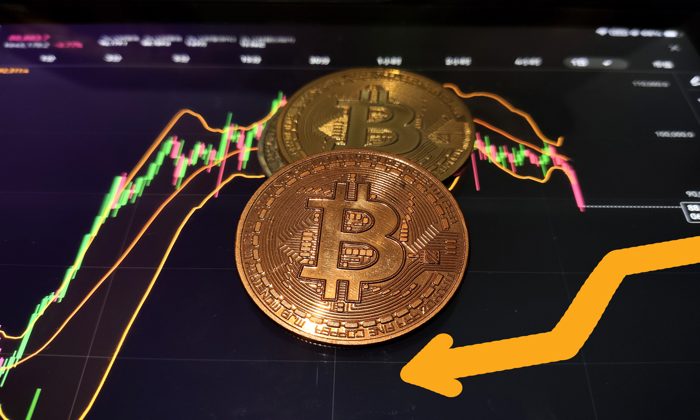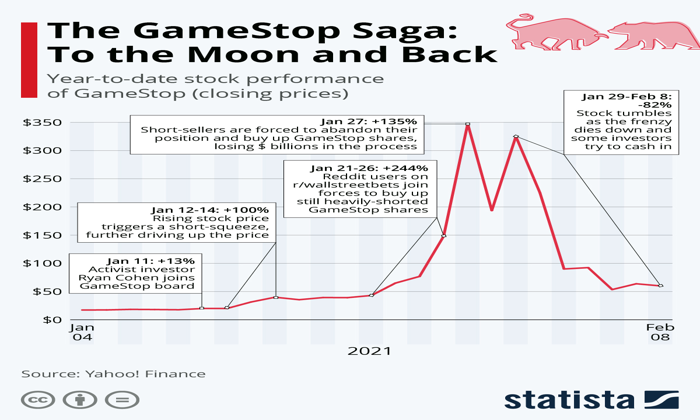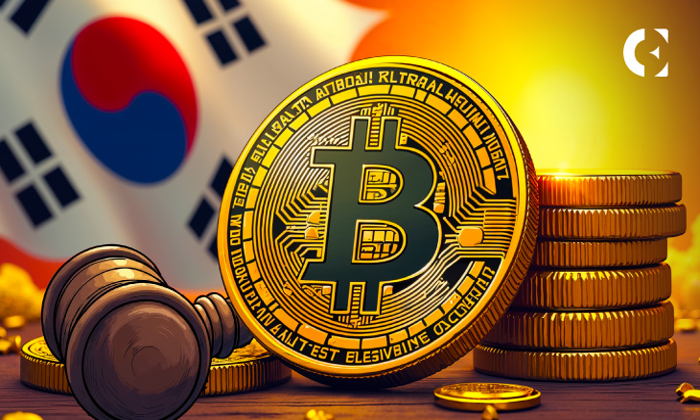Japan cryptocurrency regulations are on the brink of transformation as the Financial Services Agency (FSA) seeks to classify digital currencies as financial products. Set to be introduced in 2026, the new regulations will implement insider trading restrictions that mirror standards in traditional finance, providing a safer and more structured environment for crypto investors. This pivotal shift comes as Japan aims to align its crypto investment laws with global standards, fostering greater acceptance within the financial sector. The move is expected to enhance the role of prominent exchanges, such as SBI VC Trade, which is gearing up to utilize USDC for transactions. As the landscape evolves, the reclassification could not only boost investor confidence but also attract institutional interest in Japan’s burgeoning crypto market.
The regulatory framework governing digital currencies in Japan is undergoing significant changes, aimed at improving their legitimacy and enhancing investor protection. By redefining how cryptocurrencies are perceived legally—much like conventional financial assets—the Japan FSA is taking strategic steps to foster innovation while managing risks associated with crypto financial products. This reclassification will be critical, especially with debates revolving around laws related to insider trading Japan, a move that aims to shield investors and cultivate trust in the crypto ecosystem. Major players such as SBI VC Trade are poised to play essential roles in these developments. As the country navigates through this transformative phase, it’s clear that Japan is serious about creating an inclusive financial landscape that accommodates the growing influence of cryptocurrencies.
Japan’s Evolving Cryptocurrency Regulations
Japan is strategically positioning itself to integrate cryptocurrency into its financial landscape by redefining its regulatory framework. The Financial Services Agency (FSA) is taking significant steps toward reclassifying cryptocurrencies as financial products, aligning their regulatory treatment with that of traditional assets. This effort indicates an evolving understanding of digital assets, differentiating them from securities while emphasizing their investment attributes. Regulations such as these could pave the way for a more robust market environment, enhancing consumer protection and fostering innovation.
The proposed legislation, anticipated to be introduced to parliament as early as 2026, marks a pivotal phase in Japan’s cryptocurrency journey. Following discussions with industry experts, the FSA aims to implement insider trading restrictions similar to those already established in traditional financial markets. Such measures demonstrate a commitment to maintaining market integrity and could enhance investor confidence, potentially leading to increased participation in the sector.
Impact of Japan FSA Cryptocurrency Policies
The Japan FSA’s forthcoming policies are expected to have significant implications for both domestic and foreign investors. By aligning cryptocurrency regulations with those of conventional financial products, the agency aims to create a more secure investment environment. This regulatory alignment could position Japan as a leading destination for cryptocurrency investments, attracting financial institutions looking to diversify their portfolios with crypto financial products.
Furthermore, this shift not only legitimizes digital assets within the investment landscape but also addresses concerns related to market manipulation and insider trading. As Japan enhances its crypto investment laws, industry players will need to adapt to the changing regulatory climate, ensuring compliance while pursuing growth opportunities. With a clearer regulatory framework, companies like SBI VC Trade are poised to thrive and innovate, expanding their services and offerings in the token economy.
SBI VC Trade and USDC Adoption
SBI VC Trade’s recent approval to utilize USDC in Japan marks a significant milestone for the crypto market. As a leading exchange under SBI Holdings, it is set to enhance the utility of stablecoins within the Japanese financial landscape. This move is particularly notable as USDC becomes the first stablecoin deployed by a major Japanese exchange, facilitating smoother transactions and potentially increasing market liquidity. Such advancements can promote the use of cryptocurrencies for everyday transactions in Japan.
The integration of USDC aligns with broader trends of cryptocurrency adoption, allowing users to seamlessly transact while minimizing volatility risks typically associated with other cryptocurrencies. As user confidence in cryptocurrencies grows and regulatory frameworks become clearer, institutions in Japan could embrace more digital financial products, leading to a significant shift in consumer behavior and investment practices.
Insider Trading Regulations in Japan’s Crypto Landscape
As Japan prepares to introduce insider trading regulations for cryptocurrencies, stakeholders within the crypto community are paying close attention. The proposed measures aim to instill a level of transparency and fairness in crypto trading that currently mirrors traditional financial markets. This regulatory initiative is crucial for enhancing investor confidence, particularly for institutions that may have been hesitant to engage in the crypto market due to perceived risks of manipulation.
With insider trading laws akin to those in place for established financial products, Japan is signaling its readiness to regulate the fast-evolving crypto sector more rigorously. This could lead to a healthier trading environment, attracting a diverse range of investors and encouraging participation from various sectors, including institutional investors who have been waiting for clearer oversight.
The Future of Crypto Investment Laws in Japan
Japan’s introduction of comprehensive crypto investment laws is expected to play a transformative role in the adoption and expansion of digital assets. By clarifying the legal status of cryptocurrencies and implementing regulations that protect investors, Japan can foster a more dynamic crypto economy. This evolution is critical, as investors seek safety and assurance amidst the rapidly growing landscape of digital currencies.
As the FSA works towards this legislative goal, it is essential for potential investors to stay informed about developments and how they may affect tax implications and investment strategies. The current tax structure places a significant burden on crypto investments, with rates climbing as high as 55%, compared to a more favorable 20% for traditional financial products. A reevaluation of these tax policies could further stimulate investment in cryptocurrencies, encouraging broader participation in this innovative market.
Benefits of Defining Digital Assets as Financial Products
Defining cryptocurrencies as financial products is poised to yield multiple benefits for Japan’s economy. Such a classification allows for greater regulatory oversight, which can contribute to consumer protection and market integrity. As cryptocurrencies are increasingly adopted for both investment and payment purposes, establishing a clear regulatory foundation promotes responsible innovation and could lead to the development of new financial mechanisms and products.
With clearer regulations, financial institutions may feel more secure in offering crypto-related services, thus expanding the market’s infrastructure. This development could lead to increased liquidity, better pricing, and a wider array of crypto financial products in Japan, bolstering the country’s position as a leader in the global cryptocurrency arena.
Cryptocurrency Popularity in Japan
Cryptocurrency is gaining significant traction in Japan, reflecting a general trend toward the acceptance of digital assets in everyday financial transactions and investments. The growing presence of notable firms within the crypto industry signifies the potential for cryptocurrencies to move beyond speculative investments and into mainstream financial products. Companies like Metaplanet, which has amassed substantial Bitcoin holdings, exemplify this shift.
The increasing popularity of cryptocurrencies is evident as more individuals and institutions recognize the benefits of diversifying their investment portfolios with digital assets. As regulations become more favorable, many anticipate that Japan will continue to experience a surge in crypto investments, driven by better infrastructure, heightened security measures, and a clearer understanding of the space.
Japan’s Regulatory Framework for Crypto Financial Products
Japan’s approach to regulating crypto financial products reflects a desire to balance innovation with safety and security. By aligning digital assets with traditional financial regulations, Japan aims to cultivate a competitive environment that supports both startups and established players in the crypto space. The proposed framework seeks to mitigate risks while providing opportunities for growth.
This regulatory framework can enhance Japan’s attractiveness for international investments and partnerships, significantly boosting the local economy. As global interest in cryptocurrencies rises, Japan’s proactive stance may serve as a model for other nations exploring similar regulatory approaches, facilitating the establishment of a worldwide standard for crypto oversight.
Institutional Participation in Japan’s Crypto Market
Institutional interest in the Japanese cryptocurrency market is projected to escalate as the regulatory landscape becomes clearer and more supportive. With the FSA’s commitment to implementing regulatory standards akin to those for traditional financial products, institutions can operate with greater confidence. This shift could lead financial institutions to explore the incorporation of cryptocurrency into their investment strategies more actively.
As participation from institutions grows, the market may witness increased stability and reliability, promoting broader acceptance among general investors. This dynamic could catalyze a ripple effect, enhancing market liquidity and driving further innovation within the fintech sector, ultimately advancing Japan’s position in the global crypto market.
Frequently Asked Questions
What are Japan’s cryptocurrency regulations set by the FSA?
Japan’s cryptocurrency regulations, overseen by the Financial Services Agency (FSA), focus on reclassifying digital currencies as financial products. This shift aims to implement insider trading restrictions similar to those applied in traditional financial markets, enhancing the regulatory framework governing crypto investments.
How will Japan’s crypto financial products be regulated?
The regulation of crypto financial products in Japan will likely mirror existing regulations for conventional financial products. The FSA is proposing changes to the Financial Instruments and Exchange Act that will differentiate digital assets from securities while recognizing their investment properties, thereby creating a more structured approach to crypto finance.
What is the role of SBI VC Trade in Japan’s cryptocurrency market?
SBI VC Trade, a subsidiary of SBI Holdings, is positioning itself as a key player in Japan’s cryptocurrency market. Following regulatory approval, SBI VC Trade plans to integrate the stablecoin USDC, marking a significant step in enhancing the accessibility of crypto financial products in Japan.
What insider trading regulations are being proposed for Japan’s cryptocurrency market?
Proposed insider trading regulations for Japan’s cryptocurrency market will align with those currently governing traditional financial products. While specific criteria are under discussion, these regulations aim to create a safer environment for investors and enhance market integrity in crypto transactions.
How does Japan’s crypto investment laws impact tax rates compared to traditional financial products?
Japan’s crypto investment laws impose tax rates as high as 55% on crypto gains, starkly contrasting with the 20% capital gains tax applicable to traditional financial products. This disparity highlights the regulatory differences that could influence institutional participation in crypto investments.
| Key Points |
|---|
| Japan plans to classify cryptocurrencies as financial products and introduce insider trading rules similar to traditional financial markets. |
| Legislation to amend the Financial Instruments and Exchange Act is expected by 2026. |
| The reclassification will differentiate digital assets from securities while acknowledging their investment characteristics. |
| SBI VC Trade, a subsidiary of SBI Holdings, will help implement USDC in Japan after obtaining regulatory approval. |
| Japan is witnessing increased cryptocurrency adoption, requiring regulators to update their oversight mechanisms. |
| Japan’s crypto environment includes major players like Metaplanet, which holds 3,350 BTC. |
| Well-defined regulations could attract institutional investments in cryptocurrencies, lowering tax rates compared to traditional products. |
Summary
Japan cryptocurrency regulations are undergoing significant changes as the country moves to classify digital assets within its financial framework. These new regulations are expected to enhance oversight and promote institutional investment in cryptocurrencies, leveraging Taiwan’s position as a leader in the crypto space. By aligning with traditional financial product standards, Japan aims to create a safer and more attractive environment for both investors and companies, ultimately fostering a thriving cryptocurrency ecosystem.
Japan cryptocurrency regulations are on the verge of a transformative upgrade, as the nation seeks to redefine how digital assets are categorized within its financial landscape. The Financial Services Agency (FSA) of Japan is set to propose significant legislative changes aimed at regulating cryptocurrencies as financial products, akin to traditional investment avenues. This exciting development, expected to be unveiled to parliament by 2026, follows extensive consultations with industry experts dedicated to enhancing the country’s crypto framework. Among the key discussions is the potential for insider trading regulations that mirror those found in conventional markets, ensuring a fair trading environment. Additionally, the increasing acceptance of crypto financial products Japan, such as the USDC stablecoin by SBI VC Trade, reflects the growing demand for secure and regulated digital investment options.
The landscape of digital currency oversight in Japan is undergoing significant changes, with implications for cryptocurrency transactions and investments countrywide. Recent moves by the Financial Services Agency (FSA) indicate a shift towards integrating cryptocurrencies more closely with the traditional financial system, emphasizing the need for updated regulations regarding crypto trading and investment. As Japan advances its crypto financial products initiatives, the focus on compliance with laws related to insider trading Japan is becoming increasingly important. This evolution will not only encourage broader cryptocurrency adoption but also ensure that existing investors can navigate the market safely and effectively. With companies like SBI VC Trade leading the way in offering new digital assets like USDC, the future of Japan’s crypto investment laws looks promising.
















Leave a Reply